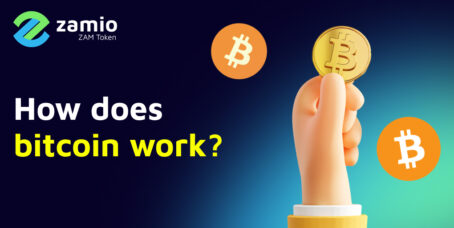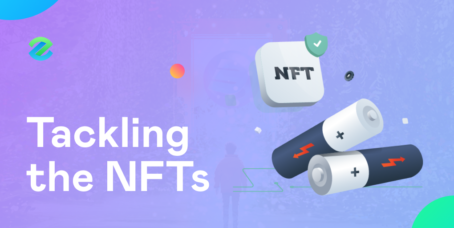Table of Contents
What is cryptocurrency staking?
Staking is a popular passive income strategy in the crypto industry used in decentralized finance (Defi) and any crypto project that use the Proof of Stake (PoS) consensus mechanism.
Staking in the broader sense means depositing or locking up crypto coins or tokens to earn more coins or tokens based on annual percentage yield or APY.
More specifically, it is a term that came into existence from the proof of stake (PoS) consensus algorithm, a mechanism by which validators on a specific cryptocurrency network validate user transactions and earn rewards as a result.
As a validator:
You need to independently operate a node (computer device or hardware) and install special software to check the validity of network transactions before storing them in the blockchain database.
Validators must stake (deposit or lock up) a hefty amount of coins or tokens for a period of time. The staked amount is required to prevent participants from acting in bad faith.
In return, validators earn income from transaction fees and reward from newly minted coins or tokens dominated in the native cryptocurrency of the network that they have joined.
As a delegator:
If you have neither the capital nor the skills to operate a node, you can delegate your coins or tokens to validators for a small fee and earn a share from the revenue. Many platforms such as centralized exchanges offer this service for their clients through something called Staking-as-a-Service (SaaS).
Users simply lock up their tokens for a specific period on the trusted staking provider platform and immediately start earning APY. The APY depends on the coin or token staked. The provider sets the min and max staking amount, among other terms and conditions.
The best platforms for staking cryptocurrencies
We have listed below the top 5 crypto exchanges or trading platforms that offer to stake as a service for their clients. Each is unique in its own way. On all centralized platforms, users need to go through mandatory identity verification.
Binance
Binance is one of the most popular centralized crypto exchanges offering various services for crypto developers and traders, including IEOs, P2P trading, and SaaS. Binance divides staking into categories:
- Fixed staking. Focused on PoS cryptocurrencies.
- DeFi staking. Focuses DeFi tokens
Although Binance was once hacked, it enjoys a high-security level and insurance program to cover stolen funds. Unfortunately, user data could also get compromised during hacks.
Other disadvantages include regulatory pressure faced in 2021 and disruptions in services due to user overload, especially during sharp market downtrends.
However, Binance has shown cooperation with law enforcement and constantly upgrades its platform to solve overloads and scalability issues. A big advantage of Binance is its low trading fees compared to others.
Coinbase
In second place is another popular crypto exchange listed on Nasdaq in the spring of 2021. The platform also has functionality for staking.
The platform has banned access for users from many countries while restricting services for others. For example, users from Russia cannot access the trading terminal of a crypto exchange.
You should first check if you are eligible to become a user of Coinbase before joining. Another disadvantage of Coinbase is its high trading fees compared to other crypto exchanges such as Binance.
eToro
The platform is best known for its brokerage and trading services, hosting thousands of financial instruments. This includes dozens of cryptocurrency pairs that you can buy, sell and trade with a minimum stake of $25.
As far as what eToro offers in the context of cryptocurrency staking, the platform makes the end-to-end process seamless. eToro automatically pays you the corresponding reward simply for holding tokens in your wallet without a locked-up period.
Kucoin
Kucoin earn has 17 coins for perpetual staking and 3 for fixed. Profitability, timing, regularity of payments, and the minimum and maximum amount depend on the specific coin.
The platform offers a soft staking service, allowing users can trade their staked coins. There are 32 coins available for Kucoin soft staking.
Kraken
In December 2019, the Kraken exchange joined the list of platforms that support cryptocurrency staking. The crypto exchange offers on-chain staking using the PoS protocol and off-chain via Kraken Margin Pools.
The user transfers digital assets from his main exchange wallet to a specific address to earn staking rewards. Next, wait for confirmation that the coins are accepted for staking and receive payments to the same address.
The APY depends on the specific cryptocurrency. Rewards are distributed twice a week.
Benefits of using staking as a service
- No skills or equipment is needed.
- Earning Fixed income
- Easy to set up and join nodes or validators through staking platforms
Disadvantages of staking as a service
investors who stake their coin or token should be aware of the following:
- Locked up period: under certain conditions, early withdrawal is prohibited. This means that you cannot quickly sell a cryptocurrency when it drops sharply in price.
- Slashing: if validators cheat the system or make a mistake, or go offline, they get penalized by slashing some of their staked amounts.
- Fees: platform change a small fee for providing staking as a service.
Conclusion
While Proof of Stake in ETH is still in the pipeline, you can already earn income from staking other quality PoS coins. Staking can be risky as staked coins and tokens may lose value due to the nature of volatility of the crypto market. Staking should be also treated with caution, especially new protocols promising suspiciously high rewards for profitable farmers or liquidity providers. However, the popularity of staking is likely to continue in the future.









